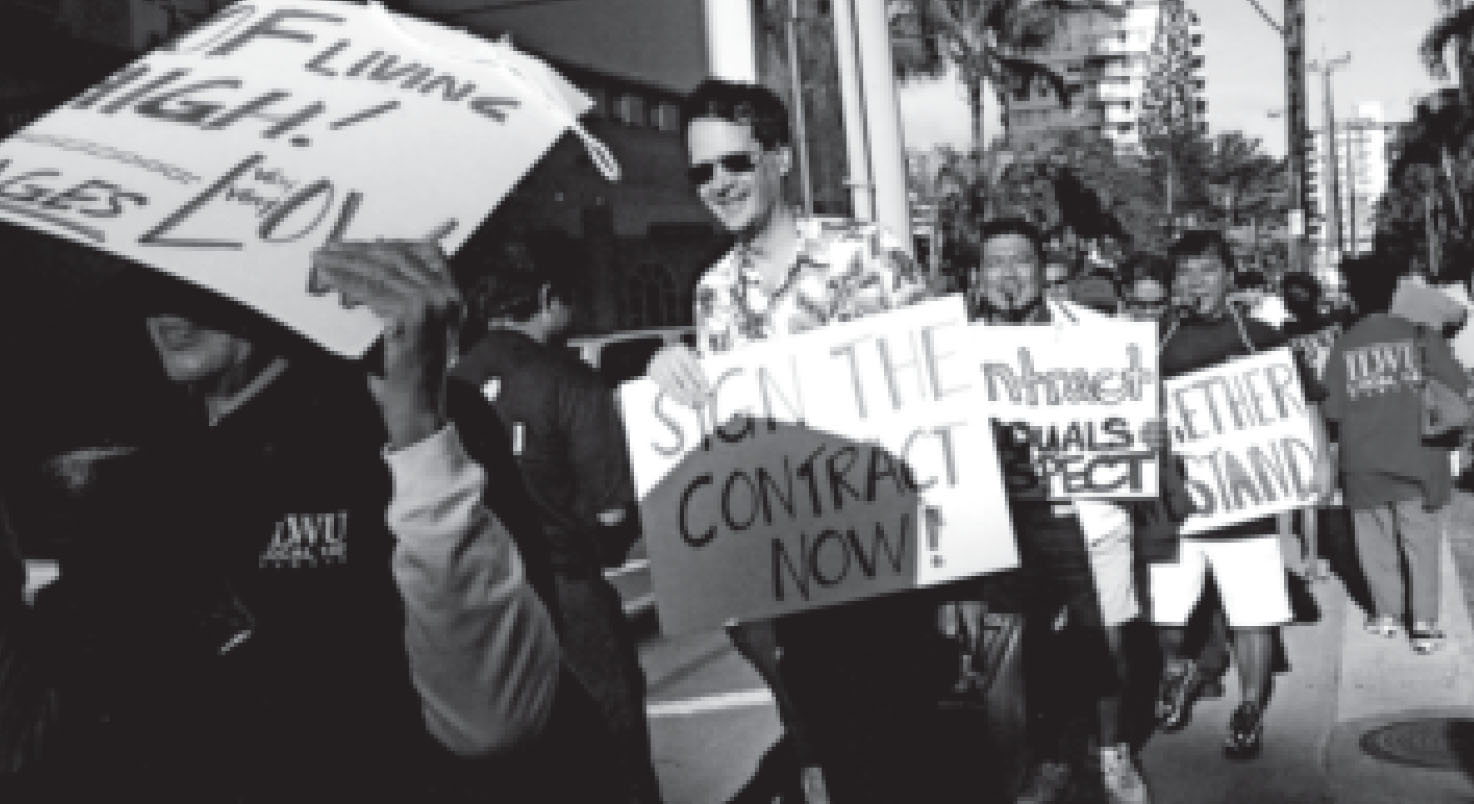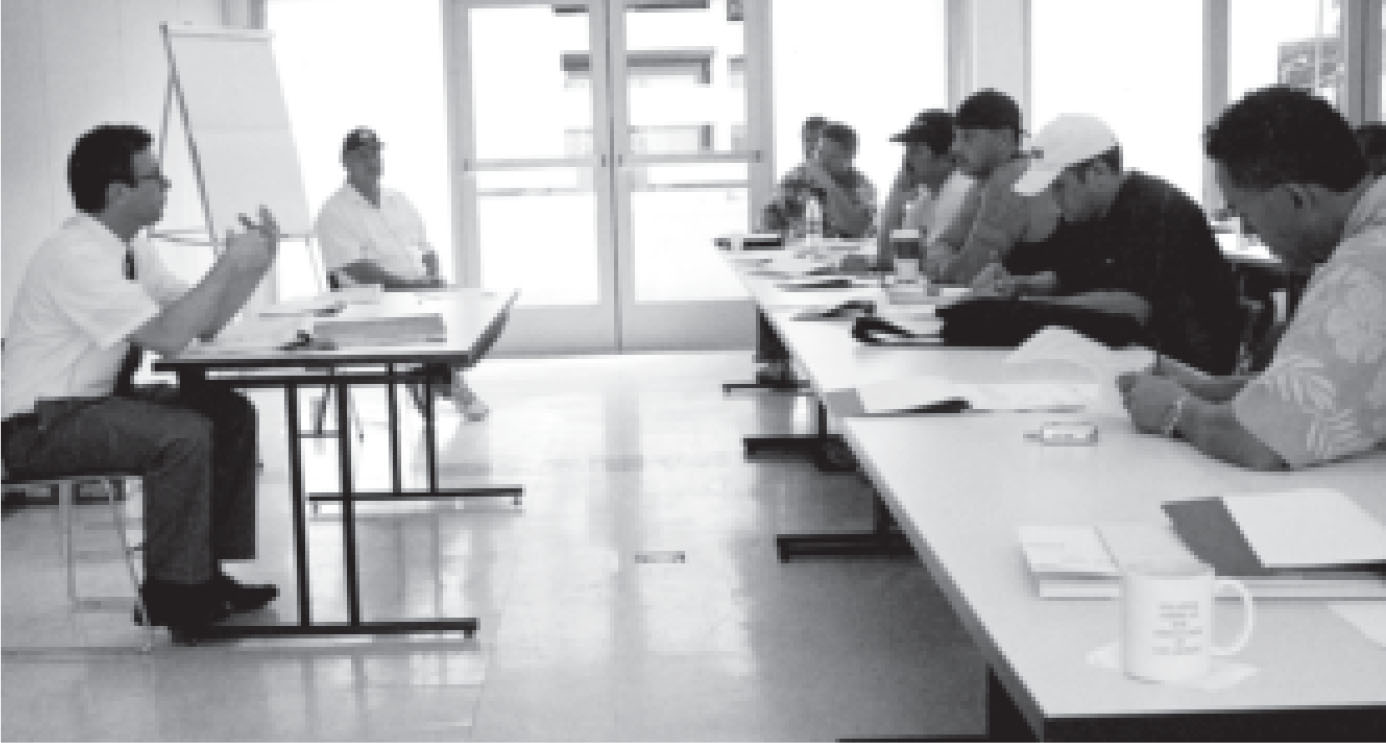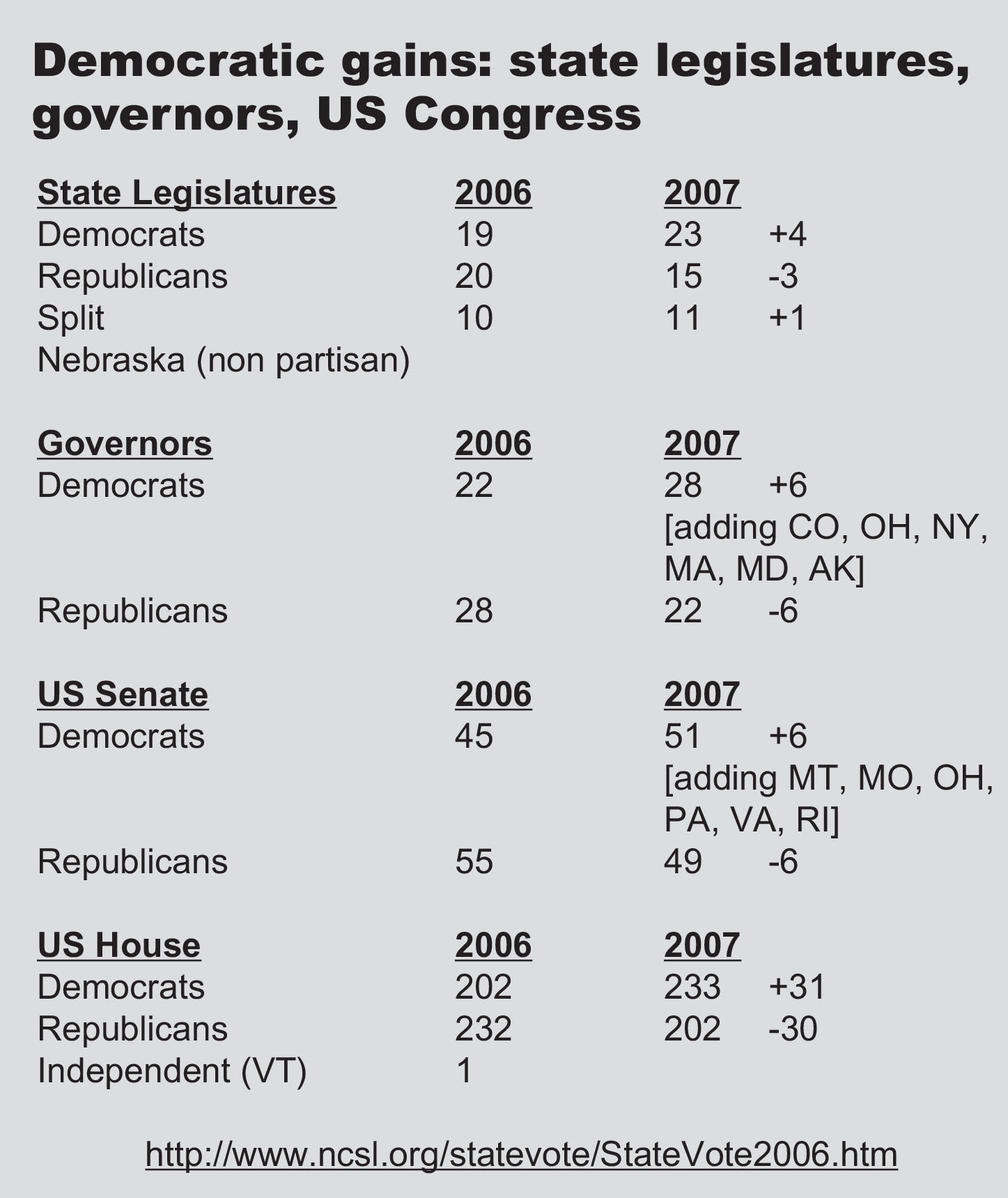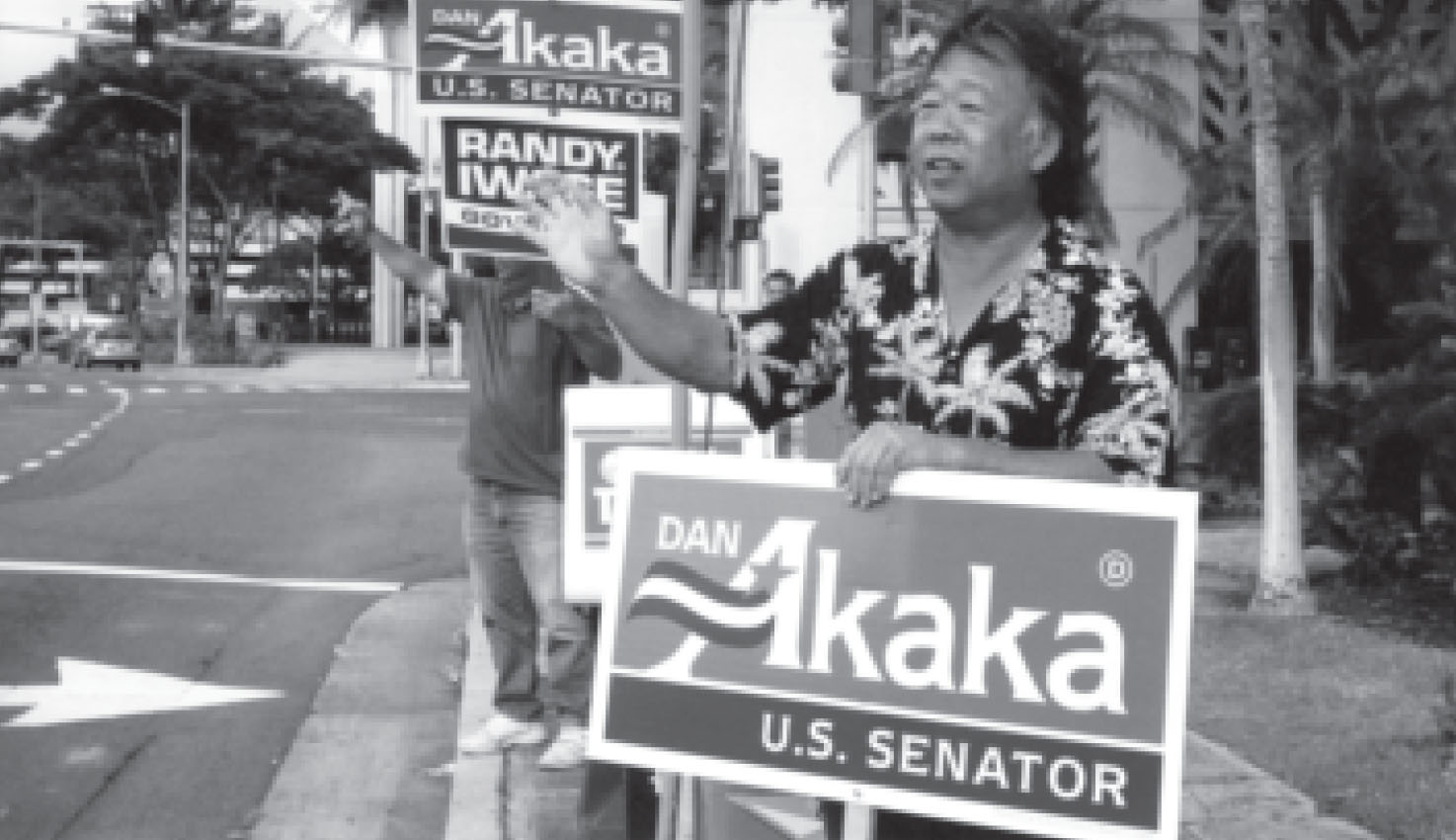Union Political Action did very well in Hawaii. Our Congressional Delegation is stronger than ever with Daniel Inouye, Danny Akaka, Neil Abercrombie, and the newly elected Mazie Hirono.
There was no change in the State Senate with 20 Democrats and 5 Republicans. A previously Democratic seat held by Brian Kanno went to Republican Mike Gabbard. But this was offset by Democrat, Jill Tokuda, winning the seat previously held by Republican Bob Hogue.
In the State House, the Democrats picked up two additional seats for a total of 43 members, while the Republicans lost 2 seats and are down to just 8 members in the House.
The only bad result of the elections was the strong showing of Republican Governor Linda Lingle with 61.7% of the vote. Lingle had 20 times more money than the Democratic challenger Randy Iwase, with $6.5 million in campaign funds compared with Iwase’s $330,000. Lingle’s campaign ads ran constantly on radio and television before the General Elections, and she took credit for everything good that ever happened in Hawaii.
ILWU endorsed candidates on the county levels also did well.
Democrats win big
The overall results in this year’s state legislative races across the nation show a dramatic rejection of the Republican brand of government and a swing toward the Democrats. In races for state Senate, which usually undercount urban areas, the Democrats went from a 48 percent minority to a 51 percent majority; in state House races, they went from 49 to 55 percent of all seats. Prior to the election, Republicans controlled 20 state legislatures, the Democrats 19, and ten were split between House and Senate (Nebraska’s legislature is non-partisan). After the election, Democrats controlled 23, Republicans 15, and eleven were split.

ILWU members campaigned for and elected new legislators like Karl Rhodes, (with sunglasses) pictured above picketing in support of Pacific Beach Hotel workers’ fight for a fair first contract.
TWIC problems—continued from page 3
tives; there is no procedure for removing names; many terrorists are unknown and not on the list; it would be a financial burden on small tour boat operators, cruises, whale watching, etc.; Customs and Border Protection does not require similar background checks for foreign port workers under the C-TPAT program; the cards don’t make sense for hula dancers and musicians playing dockside for a cruise ship; it would hinder emergency access required by utility crews and first responders; Homeland Security doesn’t have the budget, staff, and planning to implement the program; the web based update system used by the cards are vulnerable to hacking; and on and on. The large number of excellent and appropriate comments opposed to the TWIC program would cause any rational person to step back and take a reality check. Unfortunately, the Bush Administration will most likely “stay the course” with the flawed TWIC program. ◆

Local 142 longshore leadership met to receive an update on port security issues on November 17, 2006 at the ILWU hall in Honolulu.


Unit 4406 - The Honolulu Advertiser member Gordon Young “sign-waving” in support of Senator Daniel Akaka. Union members played an important role in getting Akaka re-elected to the US Senate.
